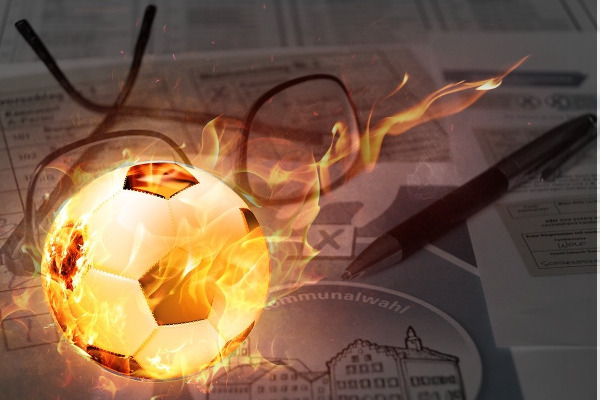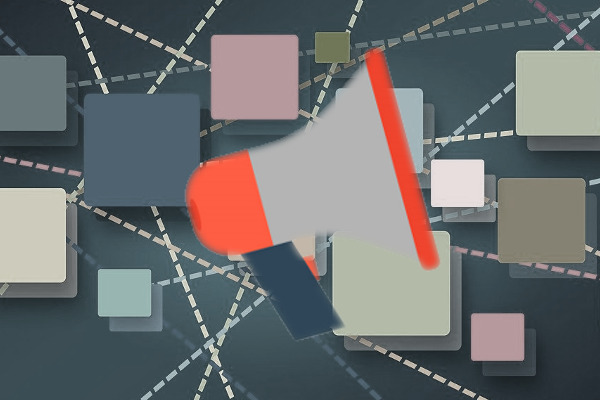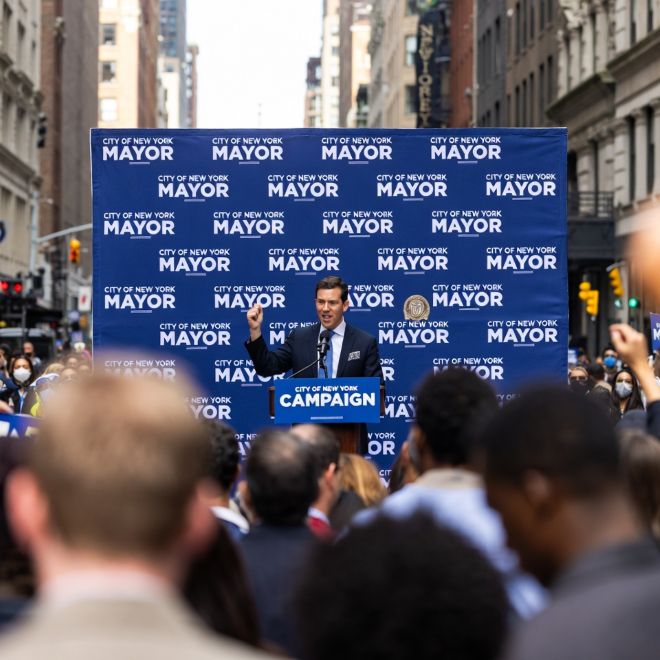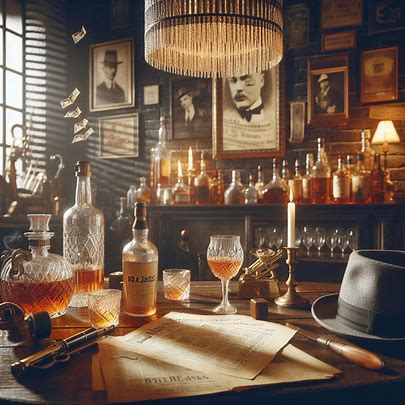 Social media has transformed political campaigns, making them more dynamic and interactive than ever before. With billions of users across platforms like Instagram, Facebook, and Twitter, political messages can reach voters directly, bypassing traditional media filters. This shift has redefined how candidates communicate, fundraise, and mobilize supporters.
Social media has transformed political campaigns, making them more dynamic and interactive than ever before. With billions of users across platforms like Instagram, Facebook, and Twitter, political messages can reach voters directly, bypassing traditional media filters. This shift has redefined how candidates communicate, fundraise, and mobilize supporters.
Many campaigns rely on strategies to amplify their visibility to maximize online engagement. One such approach involves leveraging services to buy real Instagram followers, which can provide an initial boost in credibility and broaden reach (source: 실제 인스타 팔로워 구매). While this tactic is often debated, its effectiveness is enhancing a campaign’s perceived influence, attracting organic followers, and fostering conversations.
The Role of Social Media in Modern Campaigns
Social media is not just a promotional tool; it’s a battlefield where opinions are shaped, and narratives are controlled. Candidates use these platforms to:
- Communicate directly with their audience.
- Share their stances on pressing issues.
- Respond quickly to criticism or misinformation.
Social media platforms also allow for hyper-targeted advertising. Campaigns can tailor messages to specific demographics, ensuring content resonates with the right voters. For example, a message about healthcare reform can be targeted at older demographics, while discussions on climate change might focus on younger audiences.
The Challenges of Social Media in Politics
While the opportunities are vast, so are the challenges. Negative campaigns, misinformation, and fake news spread rapidly on social media. A misstep can lead to viral backlash, damaging a candidate’s reputation.
Additionally, platforms’ algorithms often prioritize sensational or divisive content, making it harder for nuanced messages to gain traction. Political campaigns must strike a balance between engaging content and maintaining authenticity.
Effective Social Media Strategies for Political Campaigns
To navigate the complexities of social media, campaigns must adopt smart strategies. Here are key approaches to consider:
1. Engage Voters Through Interactive Content
Interactive content such as live Q&A sessions, polls, and story-based updates can foster a sense of community. When voters feel involved, they are more likely to support and promote a campaign.
2. Use Social Media Management Tools
Managing multiple platforms can be overwhelming. Tools like Hootsuite, Sprout Social, and Buffer streamline the process by scheduling posts, monitoring engagement, and tracking performance. These tools help campaigns stay consistent while saving time.
3. Leverage Automation for Efficiency
Automation tools can optimize efforts without compromising quality. Chatbots, for instance, can answer frequently asked questions, while email campaigns can be automated to deliver updates and reminders to voters.
4. Analyze Campaign Performance
Social media metrics provide valuable insights into what works and what doesn’t. Campaigns should monitor engagement rates, audience growth, and post reach to refine strategies. Real-time analytics allow for quick adjustments, ensuring that messages remain effective.
5. Combat Misinformation Proactively
Misinformation can derail campaigns. Fact-checking teams and rapid response units must address false claims and redirect the narrative. By maintaining transparency and credibility, campaigns can build trust with their audience.
The Importance of Authenticity and Connection
Despite technological advancements, authenticity remains a cornerstone of successful campaigns. Voters value genuine connections. Sharing personal stories, behind-the-scenes moments, and relatable content can humanize candidates and make them more approachable.
However, campaigns should also respect the line between engagement and intrusion. Overloading voters with constant updates or overly polished content can be insincere.
The Future of Political Campaigns on Social Media
The future of political campaigns lies in adapting to new technologies and trends. Augmented reality (AR), virtual reality (VR), and artificial intelligence (AI) are emerging as tools that could revolutionize voter engagement. For instance, AR could create immersive experiences that allow voters to visualize a candidate’s policy impact.
Furthermore, with increasing concerns about data privacy, campaigns must prioritize ethical practices. Transparency about how voter data is used will be critical in building trust.
READ ALSO: Role of Social Media in Politics
Conclusion
Social media has revolutionized political campaigns, offering unprecedented engagement and influence opportunities. By implementing strategic approaches—such as management tools, automation, and data-driven insights—campaigns can navigate this digital landscape effectively. Authenticity, transparency, and proactive communication remain essential for connecting with voters and building lasting relationships.
 When most people think about politics, they often picture debates or election campaigns. But politics plays a much bigger role in our everyday lives—especially when it comes to new homes. From local zoning rules to national housing policies, decisions made by politicians shape where and how new homes in southlake TX are built. Whether you’re a first-time buyer or a real estate investor, it helps to understand how politics can impact your options.
When most people think about politics, they often picture debates or election campaigns. But politics plays a much bigger role in our everyday lives—especially when it comes to new homes. From local zoning rules to national housing policies, decisions made by politicians shape where and how new homes in southlake TX are built. Whether you’re a first-time buyer or a real estate investor, it helps to understand how politics can impact your options.











 Exposure to polluted air leads to both short-term and long-term health complications. Respiratory diseases like bronchitis and emphysema are common among people living in areas with poor air quality. Studies also link air pollution to higher risks of stroke and heart disease.
Exposure to polluted air leads to both short-term and long-term health complications. Respiratory diseases like bronchitis and emphysema are common among people living in areas with poor air quality. Studies also link air pollution to higher risks of stroke and heart disease.
 The cost of repairing luxury vehicles highlights glaring income disparities. BMW owners must often choose between authorized dealerships and independent repair shops. While dealerships provide specialized services, their pricing can be steep, often catering to wealthier individuals. On the other hand, independent shops might offer more affordable services, but they often lack access to the latest BMW technologies, limiting their ability to address complex issues.
The cost of repairing luxury vehicles highlights glaring income disparities. BMW owners must often choose between authorized dealerships and independent repair shops. While dealerships provide specialized services, their pricing can be steep, often catering to wealthier individuals. On the other hand, independent shops might offer more affordable services, but they often lack access to the latest BMW technologies, limiting their ability to address complex issues. Sports broadcast (source: 스포츠중계) has long been a favorite way for people to enjoy their favorite games from the comfort of their homes. However, its connection to politics is often overlooked. These two worlds often collide, shaping public opinion, broadcasting decisions, and even the games themselves.
Sports broadcast (source: 스포츠중계) has long been a favorite way for people to enjoy their favorite games from the comfort of their homes. However, its connection to politics is often overlooked. These two worlds often collide, shaping public opinion, broadcasting decisions, and even the games themselves.

 Sports have always been more than just games. They serve as platforms for some of the world’s most prominent voices. Athletes, with their influence and reach, have consistently used their status to contribute to political and social conversations. Whether advocating for civil rights or taking a stand on international issues, athletes often bridge the gap between politics and sports, sparking conversations that extend beyond the field.
Sports have always been more than just games. They serve as platforms for some of the world’s most prominent voices. Athletes, with their influence and reach, have consistently used their status to contribute to political and social conversations. Whether advocating for civil rights or taking a stand on international issues, athletes often bridge the gap between politics and sports, sparking conversations that extend beyond the field.

 Furthermore, effective email writing can also
Furthermore, effective email writing can also  While homeowners are focused on deciding on gate options that require lower gate repair maintenance for the long term, professional gate installers give greater attention to the regulatory and legal requirements called for when installing automatic electric gates.
While homeowners are focused on deciding on gate options that require lower gate repair maintenance for the long term, professional gate installers give greater attention to the regulatory and legal requirements called for when installing automatic electric gates. Check with the local government’s engineering office if installing an electric gate on your property requires a building permit. Building Permit requirements depend on the building codes established by the local
Check with the local government’s engineering office if installing an electric gate on your property requires a building permit. Building Permit requirements depend on the building codes established by the local 
 Welcome to Gangnam, the vibrant and bustling neighborhood in the heart of Seoul, South Korea. Known for its high-end fashion boutiques, luxurious hotels, and innovative architecture, Gangnam is also a haven for those seeking the best in entertainment. Whether you’re a party animal looking for a wild night out or a culture vulture seeking a dose of art and history,
Welcome to Gangnam, the vibrant and bustling neighborhood in the heart of Seoul, South Korea. Known for its high-end fashion boutiques, luxurious hotels, and innovative architecture, Gangnam is also a haven for those seeking the best in entertainment. Whether you’re a party animal looking for a wild night out or a culture vulture seeking a dose of art and history,  In addition to its vibrant nightlife, Gangnam is also home to an array of restaurants and street food vendors, making it the perfect place to satisfy your late-night cravings. From traditional Korean barbecue joints to international cuisine, the options are endless.
In addition to its vibrant nightlife, Gangnam is also home to an array of restaurants and street food vendors, making it the perfect place to satisfy your late-night cravings. From traditional Korean barbecue joints to international cuisine, the options are endless.




 There has been a growing trend of incorporating greenery in indoor spaces, and government offices are no exception. Hanging plants, including trailing succulents, with their aesthetic appeal and numerous benefits, have become popular in government buildings. Let’s explore the advantages of hanging plants in government offices, such as trailing succulents, and how they contribute to a more sustainable and pleasant work environment.
There has been a growing trend of incorporating greenery in indoor spaces, and government offices are no exception. Hanging plants, including trailing succulents, with their aesthetic appeal and numerous benefits, have become popular in government buildings. Let’s explore the advantages of hanging plants in government offices, such as trailing succulents, and how they contribute to a more sustainable and pleasant work environment.

 In the world of politics, social media has become a powerful tool for politicians and candidates to reach their target audiences. TikTok, the popular video-sharing app, has quickly become a go-to platform for politicians looking to engage with younger voters and increase their online presence.
In the world of politics, social media has become a powerful tool for politicians and candidates to reach their target audiences. TikTok, the popular video-sharing app, has quickly become a go-to platform for politicians looking to engage with younger voters and increase their online presence. The audio video industry like Bose Indonesia has always been influenced by politics, whether it’s through government regulations or the policies of media companies. However, in recent years, the political landscape has become more complex, with new challenges and opportunities emerging for audio video distributors. This article will explore how politics affects the audio video distribution industry and how companies can navigate these challenges and leverage the opportunities.
The audio video industry like Bose Indonesia has always been influenced by politics, whether it’s through government regulations or the policies of media companies. However, in recent years, the political landscape has become more complex, with new challenges and opportunities emerging for audio video distributors. This article will explore how politics affects the audio video distribution industry and how companies can navigate these challenges and leverage the opportunities. Outpatient addiction treatment is a critical component of addressing substance abuse issues and promoting long-term recovery. However, the provision of addiction treatment services is not immune to the influence of politics, which can shape policies, funding, and public attitudes towards addiction and mental health.
Outpatient addiction treatment is a critical component of addressing substance abuse issues and promoting long-term recovery. However, the provision of addiction treatment services is not immune to the influence of politics, which can shape policies, funding, and public attitudes towards addiction and mental health.